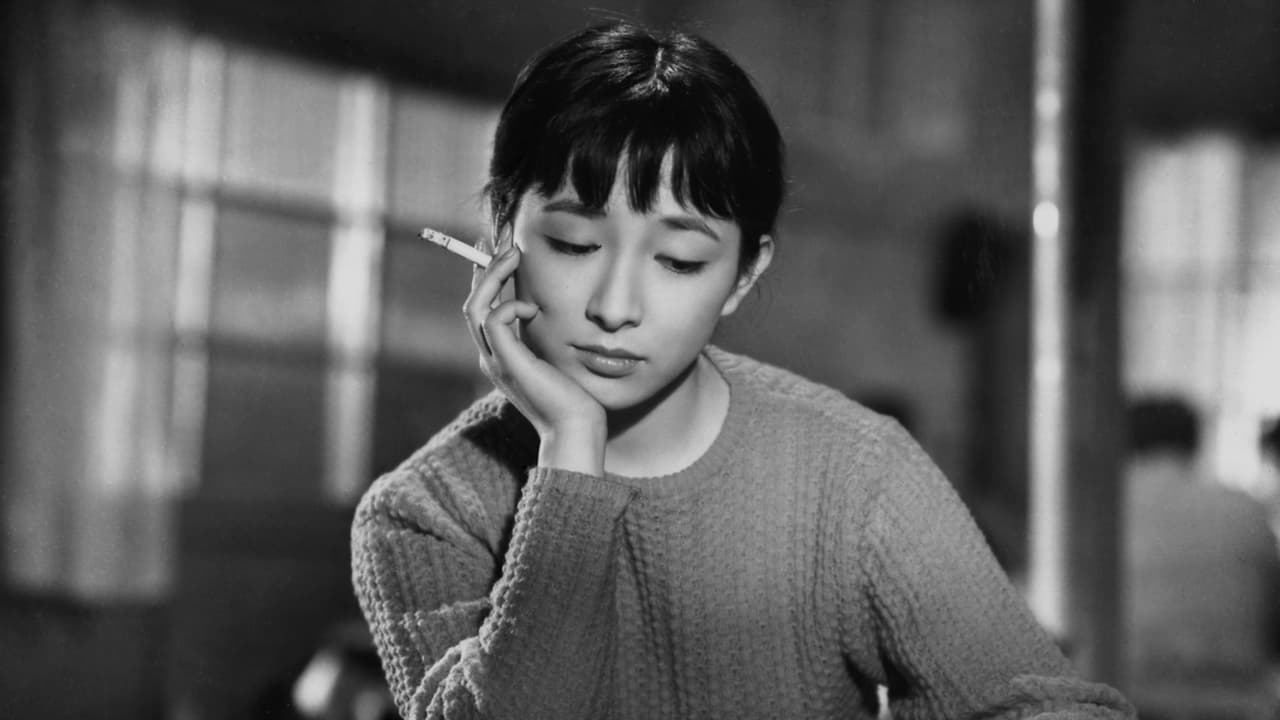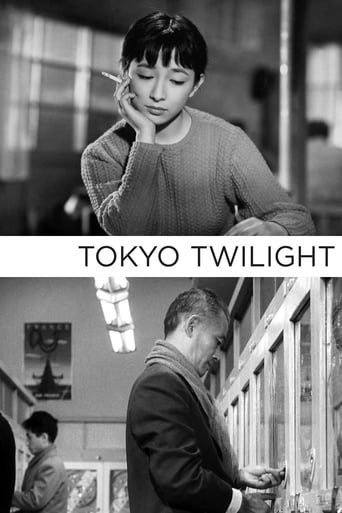


This film is methodical in developing its tale of troubles for a Japanese family, which had a wife run away from her husband and two daughters when they were young, the older daughter (now grown) running away from her own unhappy marriage, and the younger daughter running with the wrong crowd and getting pregnant. Despite all these dark elements, the film is very prim and proper in its delivery, and rather quiet.The older daughter is played reasonably well by Setsuko Hara, but she's upstaged by Ineko Arima, who plays her rebellious younger sister. The scenes with Arima frustrated by her lover's games, dealing with an unwanted pregnancy, and wondering if she was the product of an affair of her mother's are among the best in the film. It was interesting to contrast the handling of abortion by director Yasujiro Ozu with that by 'new wave' director Nagisa Oshima (Cruel Story of Youth, 1960), and the American Robert Mulligan (Love with the Proper Stranger, 1963).The issues I had with the film all relate back to Ozu's direction. Early on in the film you'll notice actors often staring directly into the camera as they deliver their dialogue, particularly the father (Chishu Ryu). These simple shots seem dated, even for the time period. As the film progresses, it's too ponderous in many of its shots and scenes, such that it ends up being much too long at 140 minutes. Lastly, I disliked the fact that it was ultimately a morality tale. With a heavy hand, Ozu essentially tells us it's important to keep a marriage together even if it's unhappy, because one parent will not be enough. The message is dated, and his delivery lacks artistry.
... View MoreThis is my fifth Ozu film. And as I watch more of his movies my respect for his genius keeps on growing. He is more avant-garde than any other film maker I have seen.While others use wars as backdrop to create a more touching drama, wars just find a small reference in his films even if his characters have lived through them. While other use death as a dramatic pivot for the whole movie, Ozu skips it altogether. People do die in his films, but they do it off screen. There are no famous last dialogs about life or last moments.But despite these things or maybe because of these things, his movies are more poignant and touching than any other I have seen. I don't really cry while watching his movies. Instead they leave me in a strange tranquil state of mind, wistfully smiling.Another thing to note is that while his movies reveal more about Japanese culture than any other movies I have seen, at the same time they are very universal.If you haven't seen any movie by Yasujiro Ozu, I recommend starting with Tokyo Story or Good Morning. This one seems much longer as it takes some time to start and is devoid of humor. This is not meant as a criticism, Tokyo Twilight is still an amazing experience. But I think an average viewer should start with something else.
... View MoreTokyo in the mid 1950s. In this stereotypical women's picture, a single, middle aged man (Chishu Ryu, an Ozu regular), tries against all odds to raise his two grown troubled daughters. One (the great Setsuko Hara, another Ozu regular) is a single mother who has left her husband and return to his father's home. The younger daughter is even more troubled, is surrounded by bad companies, and has become pregnant by her no good boyfriend. Soon, the two sisters find in a mahjong joint their long lost mother, who seems curiously unmoved at learning that her son has died years ago in a climbing accident. The sloppy plot hurts the movie a lot (only in bad melodramas, one of the characters commits suicide by throwing herself under a train, but doesn't die until she tells her story). To its credit, though, this film tackles the issue of abortion decades before western films did, but this is still minor Ozu, somewhat moving, but done in by its unnecessary melodrama and its barely believable plot points. There are many movies Ozu made during this era - from Tokyo Story, Floating Weeds, Early Summer, Late Spring, Good Morning, End of Summer, etc., that are better than this. Still, worth seeing if you are not expecting a masterpiece.
... View MoreI regret to say this, but even the brilliant Ozu, even the mature Ozu, had off-days. Ozu created many masterpieces, but this film is far less. The disasters come so fast, their development is so thin, the characters are so weakly developed and the coincidence upon which the plot turns is so great that this movie falls way below Tokyo Story, Late Spring, Equinox Flower or An Autumn Afternoon. If this is a masterpiece, what are those films?All the disasters of this family are pushed onto the screen in too short a time -- the pregnancy, the abandonment by the mother, Setsuko's breakup with her own husband. The main weakness, I think, is the lack of development of the wife who deserted Ryu. Why did she leave? The coincidence that the daughter and her friends frequent a mah-jongg parlor which turns out to be owned by the long-gone mother -- coincidences like that happen in real life, but in movies they are much too convenient.Long live Ozu! But not "Tokyo Twilight."
... View More